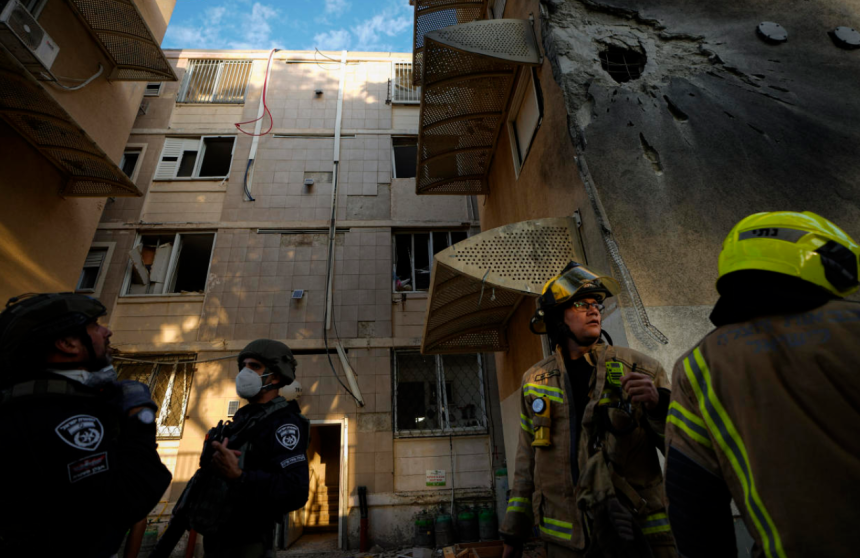Both Hamas and Israel have been accused of violating international law during their most recent fight, and the UN claims it is gathering evidence of war crimes committed by all parties.
It is difficult to enforce the law when there is a fog of war. Holding criminals accountable after wars have ended has frequently proven difficult.
Here are some of the problems.
WHAT ARE THE WAR RULES?
Armed conflict is controlled by a series of globally recognized laws and regulations, notably the United Nations charter, which outlaws aggressive conflicts while granting countries the right to self-defense.
International humanitarian rules govern battlefield behavior, particularly the Geneva Conventions, which were drafted after World War II and agreed with by practically every government.
The four 1949 treaties stipulated that civilians, the injured, and prisoners must be treated humanely during warfare. They prohibit murder, torture, hostage-taking, and “humiliating and degrading treatment,” and they oblige fighters to assist the ill and wounded of the opposing side.
The laws apply to wars between states as well as conflicts in which one of the sides is not a state, such as the conflict between Israel and Hamas.
Another important document in the law of war is the International Criminal Court’s founding Rome Statute, which defines war crimes as intentional attacks on civilians, civilian settlements, or humanitarian workers, destroying property where it is not militarily necessary, sexual violence, and unlawful deportation.
Other treaties prohibit the use of certain types of weapons, such as chemical or biological weapons. Most, but not all, countries have agreed to them.
HAS HAMAS ENGAGED IN WAR CRIME?
Hamas has launched thousands of missiles into Israeli towns and cities, and on October 7, it dispatched hundreds of fighters across the border from Gaza. They assaulted and killed citizens in their houses and communities, including children and the elderly, and abducted a large number of others. According to Israel, at least 1,400 people were killed and 199 others were kidnapped.
According to Haim Abraham, a legal instructor at University College London, the proof of crimes is apparent.
“They slaughtered civilians in their homes.” They kidnapped citizens and held them captive. “All of these are clearly war crimes,” he stated.
According to Jeanne Sulzer, a lawyer of Amnesty International France’s Commission for International Justice, the Geneva Conventions declare that “civilians should never be taken hostage.” If they are, it might be considered a war crime.”
IS ISRAEL’S REACTION LEGAL?
The Israeli military has launched airstrikes on Hamas-ruled Gaza, halted supply of food, water, gasoline, and power, and warned residents to flee the northern half of the territory in preparation for a future ground invasion. According to Gaza officials, 2,800 people were killed and 11,000 were injured over the days of bombing.
Critics charge Israel of collective punishment of Gaza’s 2 million population.
According to the Geneva-based International Committee of the Red Cross, the order to evacuate hundreds of thousands of civilians, “coupled with the complete siege explicitly denying them food, water, and electricity, are not compatible with international humanitarian law.”
The Israeli army claims it observes international law and attacks only legitimate military targets in its efforts to flush out extremists who hide among civilians.
Human Rights Watch has accused Israel of employing white phosphorus weapons. Although the incendiary material is not illegal, its usage in densely populated regions is frequently denounced. In Gaza, the Israeli Defense Force has denied deploying white phosphorous as a weapon.
CAN LAWBREAKERS BE HELD RESPONSIBLE?
A United Nations Commission of Inquiry is “collecting and preserving evidence of war crimes committed by all sides” in the present conflict, according to the report. That material might be added to the International Criminal Court’s current examination into the situation in the Palestinian territories.
The International Criminal Court (ICC), situated in the Netherlands, has the authority to prosecute national leaders for crimes and provide restitution to victims. However, certain nations, like the United States, Russia, and Israel, refuse to accept the court’s authority, and the ICC lacks a police force to carry out arrest orders.
ARE THERE OTHER OPTIONS?
While the International Criminal Court (ICC) is the only permanent international institution established to punish war crimes, other international tribunals, such as the International Court of Justice and the European Court of Human Rights, can consider cases involving alleged violations. Domestic courts in Israel and abroad can do the same. Under US law, American victims may file compensation claims against Hamas in US courts.
As with Russia’s invasion of Ukraine, the chance of war crimes prosecution in the present fight is low. Amnesty International’s Sulzer, on the other hand, stated that “legal initiatives are already a reality.” She stated that victims of Hamas assaults who are French nationals or dual citizens have previously filed complaints in French courts.
Breach of international law can also result in penalties, such as those placed on Russia by the United States, the European Union, and others in response to its invasion of Ukraine, and in rare situations, UN-authorized military involvement.















